Description
Benefits:
- Offers a full array of protective compounds from cruciferous vegetables, including I3C, DIM, and sulforaphane
- Provides a unique blend of botanicals that improve estrogen metabolism, shifting away from carcinogenic metabolites
- Supports detoxification of a variety of environmental toxins as well as naturally produced hormones by enhancing phase 1 and phase 2 liver enzymes
- Contains botanicals with potent anti-inflammatory activity
- Suitable for vegetarians/vegans
Ingredients:
| Each Vegetarian Capsule Contains: | |
| Calcium D-Glucarate (d-Glucaric Acid Calcium Salt) | 75 mg |
| Indole-3-Carbinol (3-Hydroxymethylindole) | 75 mg |
| Green Tea Extract (Camellia sinensis) (leaf) (80% Catechins, 45% EGCG*, <1% Caffeine) | 50 mg |
| Tomato Extract (Lycopersicon esculentum) (fruit) (5% Lycopene) | 50 mg |
| Broccoli Powder (Brassica oleracea var. italica) (aerial) (0.36% Sulforaphane) | 27.5 mg |
| DIM (3,3’-Diindolylmethane) | 25 mg |
| Turmeric Extract (Curcuma longa) (rhizome) (95% Curcuminoids) | 25 mg |
| Milk Thistle Extract (Silybum marianum) (seed) (50–60% Silymarin) | 25 mg |
| Rosemary 6:1 Extract (Rosmarinus officinalis) (leaf) | 12.5 mg |
| * Epigallocatechin-3-gallate | |
Non-Medicinal Ingredients: Vegetarian capsule (carbohydrate gum [cellulose], purified water), microcrystalline cellulose, vegetable grade magnesium stearate (lubricant), silica.
Recommended Adult Dose: 3 capsules once per day with food or as directed by a health care practitioner. Consult a health care practitioner for use beyond 12 weeks.
Warnings: Do not use if you are pregnant or breastfeeding, or if you have iron deficiency. Consult a health care practitioner if you have gallstones or a bile duct obstruction, stomach ulcers or excess stomach acids, or if you are taking any medications. Consult a health care practitioner prior to use if you are attempting to conceive, have low estrogen or symptoms of low estrogen, have or are pre-disposed to cancer, are taking antiplatelet medication or blood thinners, or have a liver disease. Stop use and consult a health care practitioner if you develop symptoms of liver trouble such as yellowing of the skin/eyes (jaundice), stomach pain, dark urine, sweating, nausea, unusual tiredness and/or loss of appetite. Rare, unpredictable cases of liver injury associated with products containing green tea extract have been reported (in Canada and internationally). Hypersensitivity/allergy is known to occur, in which case discontinue use. Keep out of reach of children.
Allergens: Contains no artificial colours, preservatives, or sweeteners; no dairy, sugar, wheat, gluten, yeast, soy, egg, fish, shellfish, animal products, salt, tree nuts, or GMOs. Suitable for vegetarians/vegans. Sealed for your protection. Do not use if seal is broken. For freshness, store in a cool, dry place.
Format: 90 Capsules
Contraindications: Consult a health care practitioner prior to use if you have diabetes, a gastrointestinal lesion, ulcer, are taking an anticoagulant, blood thinner, anti-inflammatory, antibiotic, or are having surgery, are pregnant or breastfeeding, or have allergy to latex or fruits (avocado, banana, chestnut, passion fruit, fig, melon, mango, kiwi, pineapple, peach, tomato).
Drug Interactions: Do not take with warfarin.16
Feature Summary: EstroVantage EM provides a comprehensive formula of plant-based compounds that improve the metabolism of estrogen and its metabolites. Cruciferous vegetables contain a variety of glucosinolates, which some studies have associated with a reduction in cancer incidence when consumed in greater amounts, most likely by causing a shift in metabolism to less carcinogenic estrogen metabolites.1,2 EstroVantage EM contains indole-3-carbinol (I3C) and its metabolite 3,3’-diindolylmethane (DIM), as well as sulforaphane from broccoli powder, all of which have been linked to lower rates of neoplastic changes and a more favourable estrogen profile.3-6 Not only do these glucosinolates improve estrogen metabolism, they also reduce inflammation by targeting key signalling molecules, such as Nrf2 and NF-κB.7,8
EstroVantage EM also includes other potent plant compounds that reduce inflammation and block carcinogenic pathways. Silymarin, a milk thistle extract, down-regulates gene products involved in the proliferation of tumour cells, along with their invasion, angiogenesis, and metastasis. In addition, it enhances glucuronidation and maintains glutathione levels.9-11 This unique combination provides green tea polyphenols, lycopene (tomato extract), turmeric and rosemary extracts, as well as calcium D-glucarate, all of which have been shown to favourably shift estrogen metabolism and reduce carcinogenic risk.12-14 Most recently, a randomized, double-blind, placebo-controlled crossover study demonstrated that taking this formula led to markedly higher urinary levels of the protective 2-OHE1 estrogen metabolite and lower levels of the more dangerous 16α-OHE1 estrogen metabolite in premenopausal women.Most recently, a randomized, double-blind, placebo-controlled crossover study demonstrated that taking this formula led to markedly higher urinary levels of the protective 2-OHE1 estrogen metabolite and lower levels of the more dangerous 16α-OHE1 estrogen metabolite in premenopausal women.15
Related Documents
References
- Lin, T., Zirpoli, G. R., McCann, S. E., et al. (2017). Trends in cruciferous vegetable consumption and associations with breast cancer risk: a case-control study. Current Developments in Nutrition, 1(8), e000448.
- Mokbel, K., & Mokbel, K. (2019). Chemoprevention of breast cancer with vitamins and micronutrients: a concise review. In Vivo, 33(4), 983-97.
- Zhang, N. Q., Ho, S. C., Mo, X. F., et al. (2018). Glucosinolate and isothiocyanate intakes are inversely associated with breast cancer risk: a case-control study in China. British Journal of Nutrition, 119(8), 957-64.
- Thomson, C. A., Chow, H. H. S., Wertheim, B. C., et al. (2017). A randomized, placebo-controlled trial of diindolylmethane for breast cancer biomarker modulation in patients taking tamoxifen. Breast Cancer Research and Treatment, 165(1), 97-107.
- Ramirez, M. C., & Singletary, K. (2009). Regulation of estrogen receptor alpha expression in human breast cancer cells by sulforaphane. Journal of Nutritional Biochemistry, 20, 195-201.
- Bradlow, H. L., Michnovicz, J. J., Halper, M., et al. (1994). Long-term responses of women to indole-3-carbinol or a high fiber diet. Cancer Epidemiology, Biomarkers & Prevention, 3(7), 591-5.
- Esteve, M. (2020). Mechanisms underlying biological effects of cruciferous glucosinolate-derived isothiocyanates/indoles: a focus on metabolic syndrome. Frontiers in Nutrition, 7, 111.
- Bauman, J. E., Zang, Y., Sen, M., et al. (2016). Prevention of carcinogen-induced oral cancer by sulforaphane. Cancer Prevention Research (Philadelphia), 9(7), 547-57.
- Agarwal, R., Agarwal, C., Ichikawa, H., et al. (2006). Anticancer potential of silymarin: from bench to bed side. Anticancer Research, 26(6B), 4457-98.
- Vargas-Mendoza, N., Madrigal-Santillán, E., Morales-Gonzalez, A., et al. (2014). Hepatoprotective effect of silymarin. World Journal of Hepatology, 6(3), 144-9.
- Binienda, A., Ziolkowska, S., & Pluciennik, E. (2020). The anticancer properties of silibinin: its molecular mechanism and therapeutic effect in breast cancer. Anticancer Agents in Medicinal Chemistry, 20(15), 1787-96.
- King-Batoon, A., Leszczynska, J. M., & Klein, C. B. (2008). Modulation of gene methylation by genistein or lycopene in breast cancer cells. Environmental and Molecular Mutagenesis, 49(1), 36-45.
- Dwivedi, C., Heck, W. J., Downie, A. A., et al. (1990). Effect of calcium glucarate on beta-glucuronidase activity and glucarate content of certain vegetables and fruits. Biochemical Medicine and Metabolic Biology, 43(2), 83-92.
- McGrowder, D. A., Miller, F. G., Nwokocha, C. R., et al. (2020). Medicinal herbs used in traditional management of breast cancer: mechanisms of action. Medicines (Basel), 7(8), 47.
- Green, T., See, J., Schauch, M., et al. (2022). A randomized, double-blind, placebo-controlled, cross-over trial to evaluate the effect of EstroSense® on 2-hydroxyestrone:16α-hydroxyestrone ratio in premenopausal women. J Complement Integr Med, 10.1515/jcim-2022-0301. Advance online publication.
- Brantley, S. J., Oberlies, N. H., Kroll, D. J., et al. (2010). Two flavonolignans from milk thistle (Silybum marianum) inhibit CYP2C9-mediated warfarin metabolism at clinically achievable concentrations. Journal of Pharmacology and Experimental Therapeutics, 332, 1081-


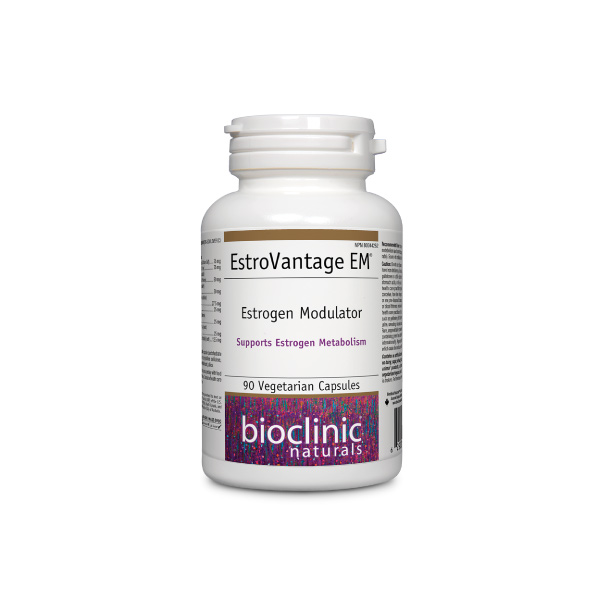
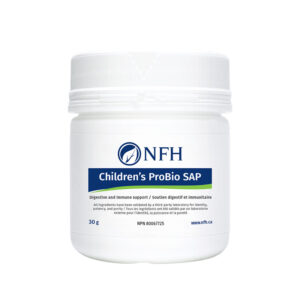
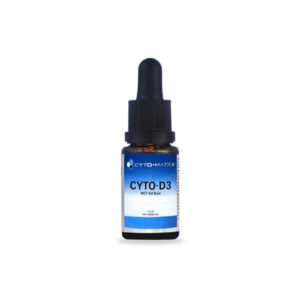
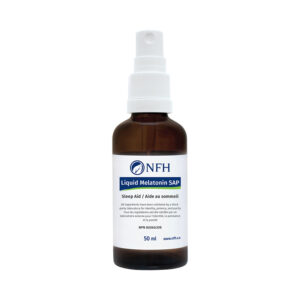
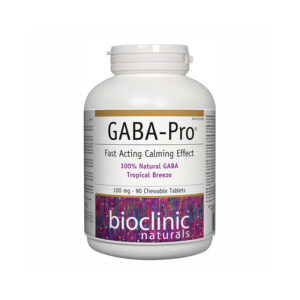
Reviews
There are no reviews yet.